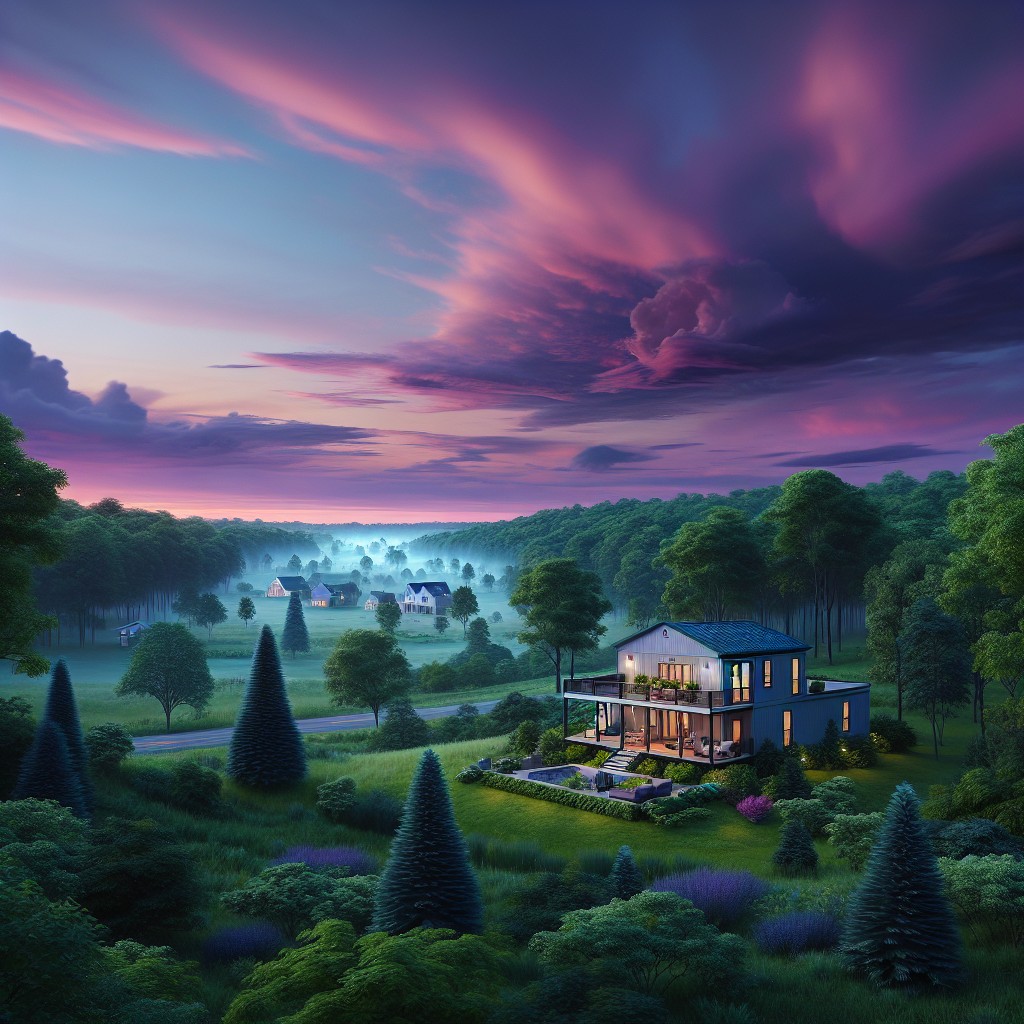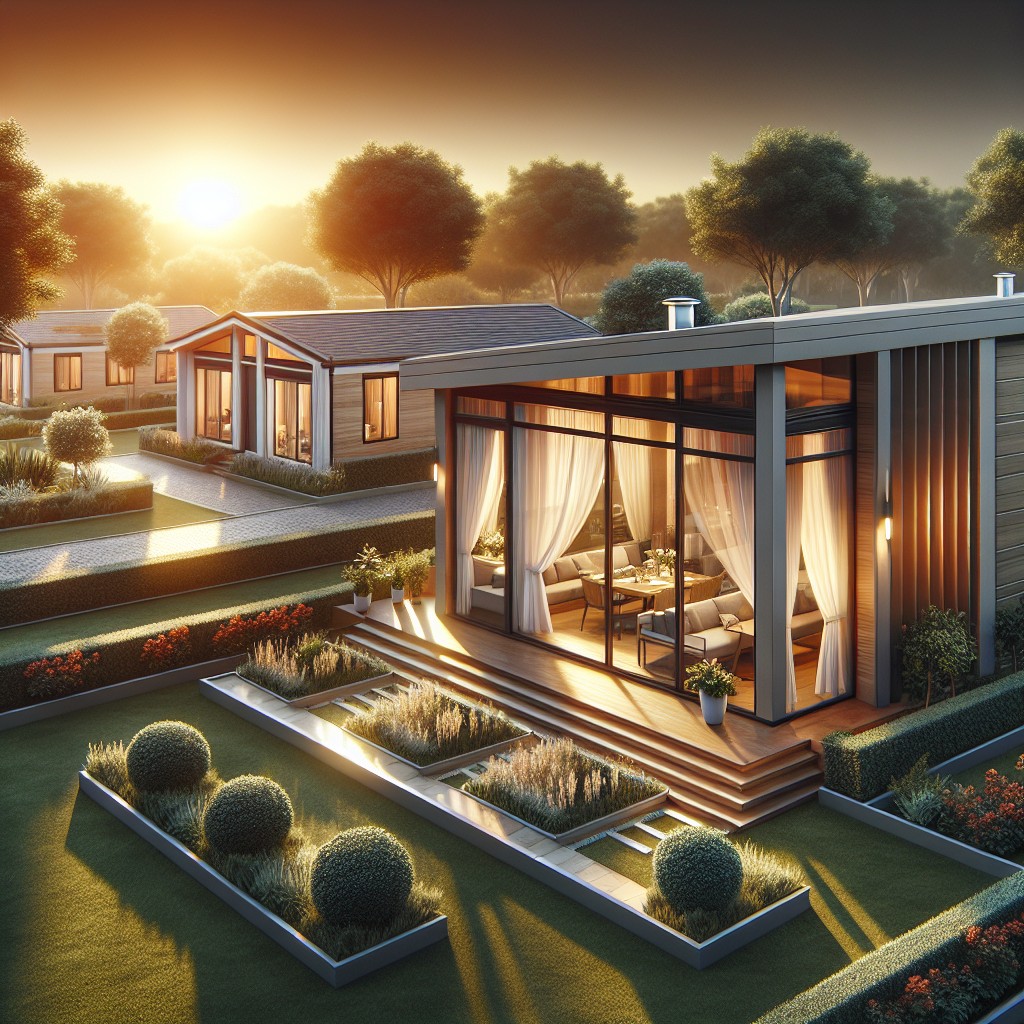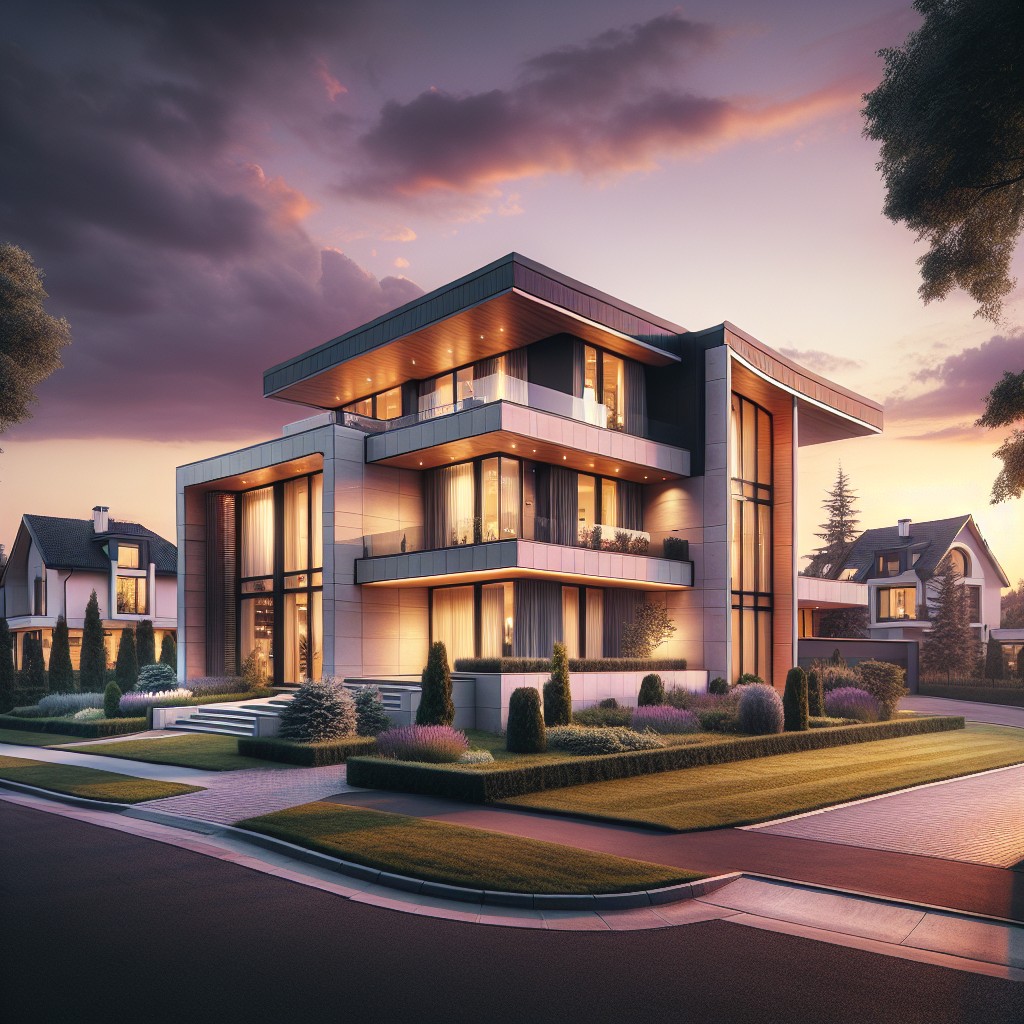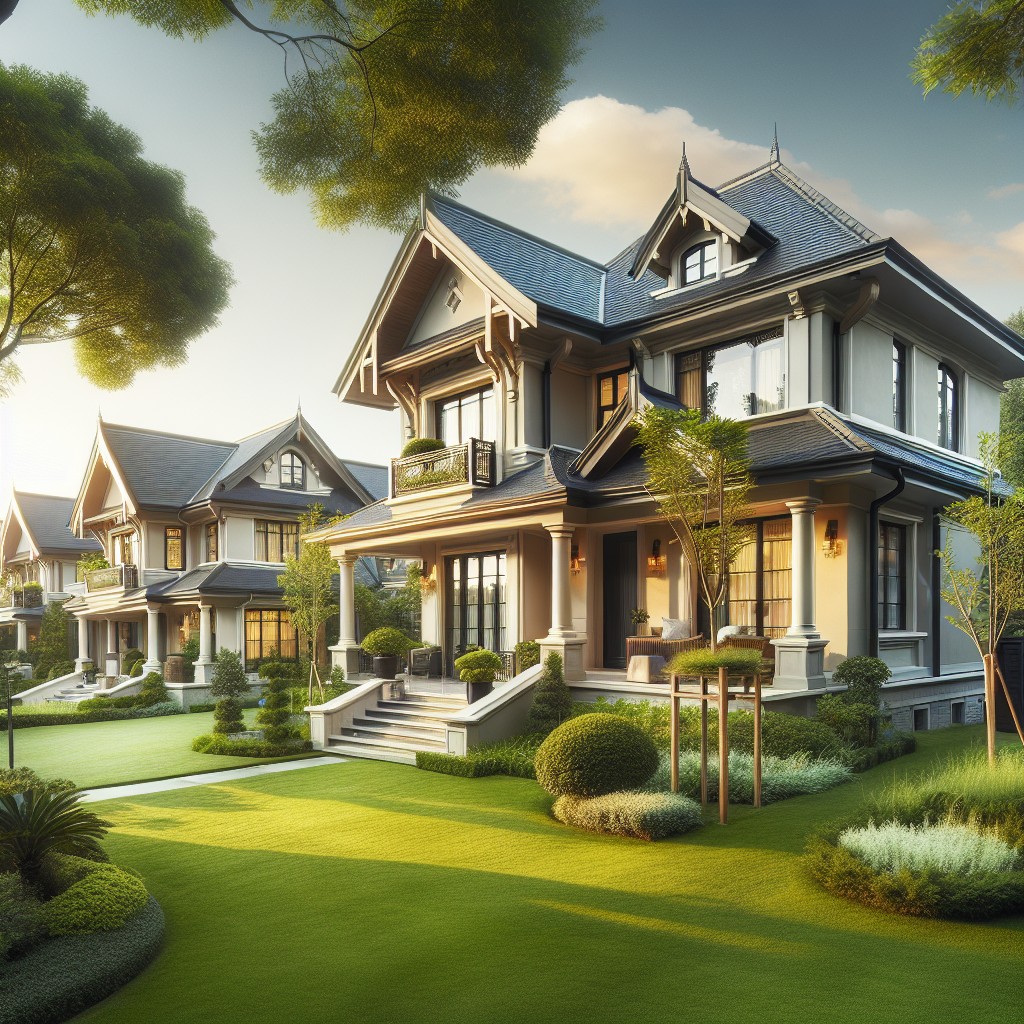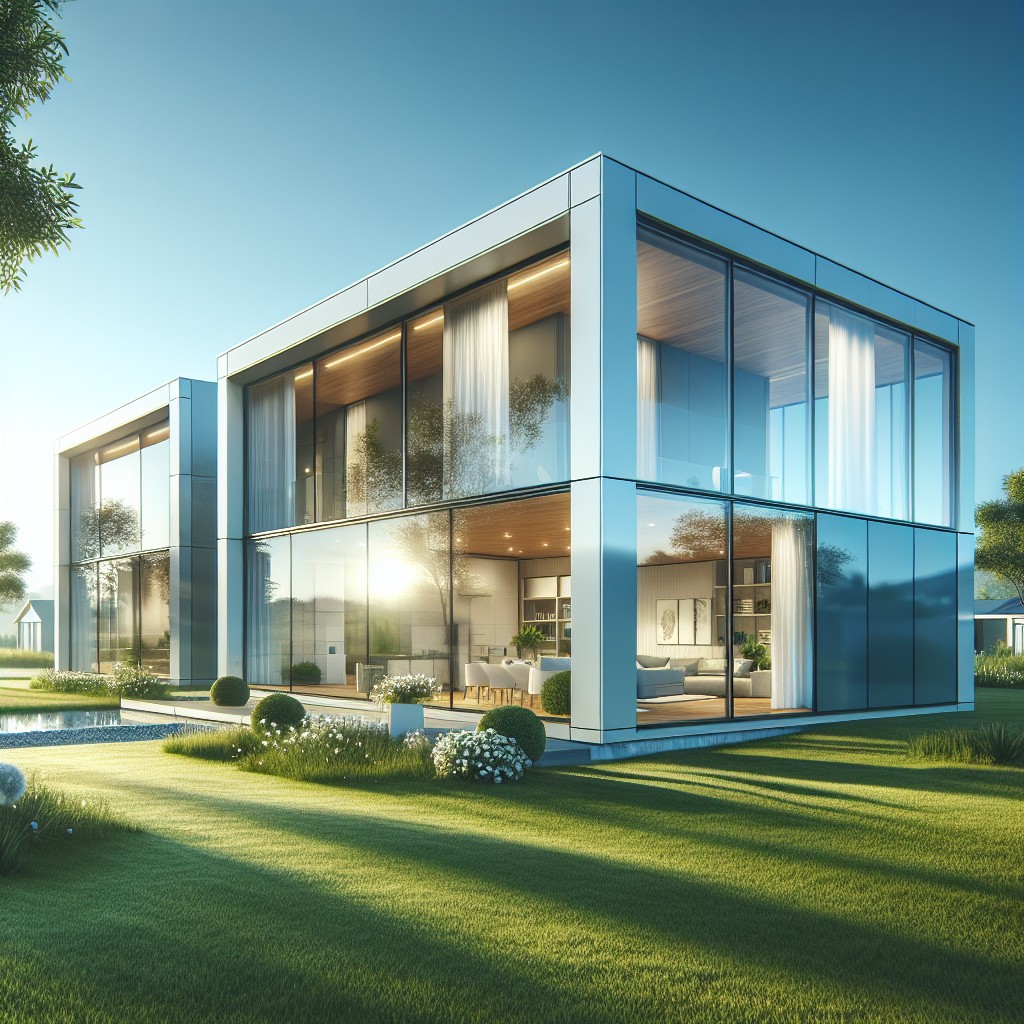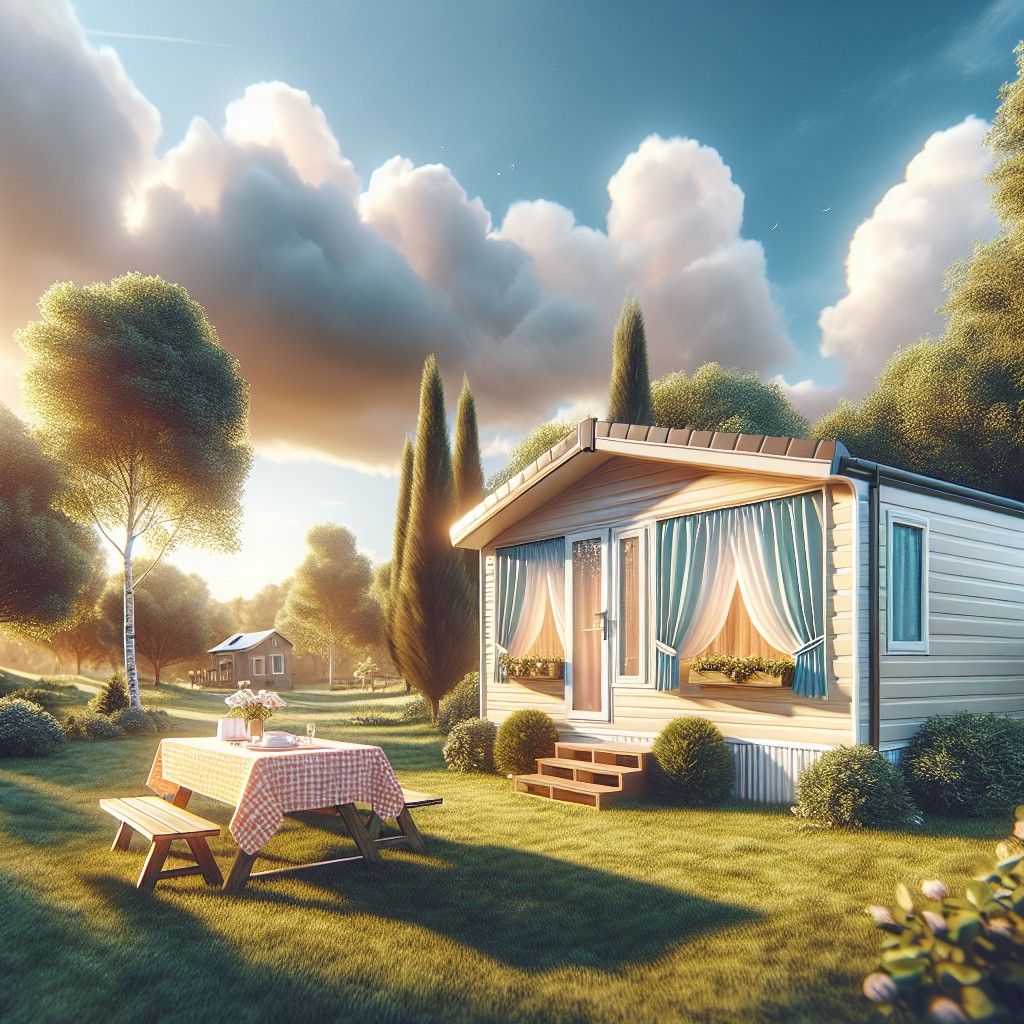Last updated on
Navigating the world of manufactured homes is simple because this article illuminates the pricing specifics of Skyline Manufactured Homes.
Skyline manufactured homes deliver a blend of style, comfort, and affordability, perfect for those seeking a sustainable dwelling option.
Typically, these homes range from $45,000 for smaller, single-section homes to $100,000 for larger multi-section models.
The estimated price range for these homes is between $100 and $185+ per square foot. Additionally, with Skyline’s discounts and sales, home modules can sometimes be as low as $40 per square foot.
Pricing ranges:
- Emmett (3 Bedrooms, 2 Bathrooms, 1,386 Square Feet): $138,600 – $256,410+
- Newdale (3 Bedrooms, 2 Bathrooms, 1,493 Square Feet): $149,300 – $276,205+
- Rexburg (3 Bedrooms, 2 Bathrooms, 1,280 Square Feet): $128,000 – $236,800+
- McMillan (1 Bedroom, 1 Bathroom, 492 Square Feet): $49,200 – $91,020+
- Waggoner (2 Bedrooms, 1 Bathroom, 820 Square Feet): $82,000 – $151,700+
Key takeaways:
- Pricing varies based on customization options and premium features.
- Base price covers the home only, separate from land and site preparation costs.
- Location, market demand, and promotions can affect prices.
- Skyline offers a diverse range of models at various price points.
Overview of Skyline Manufactured Homes Price List
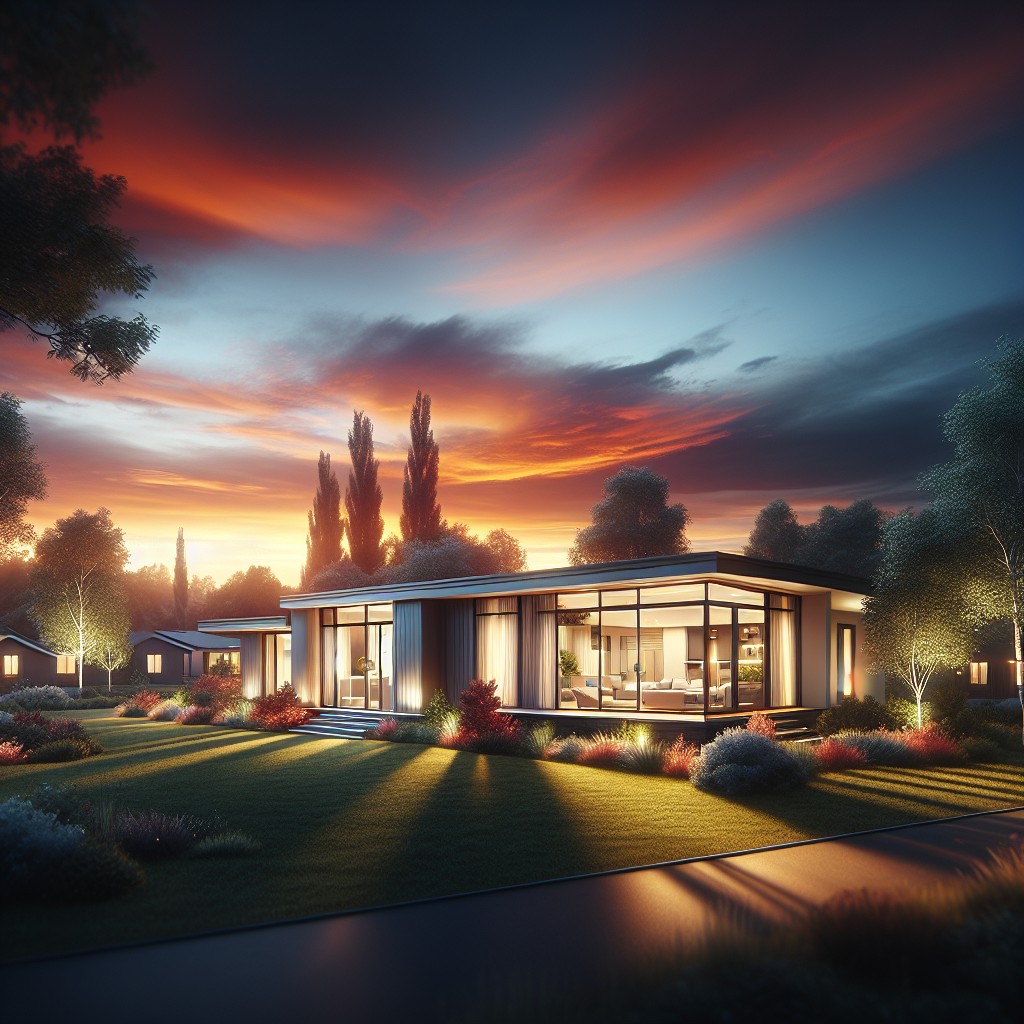
Skyline Manufactured Homes offer a diverse range of options to fit various needs and budgets. Prices for these homes are influenced by size, layout, regional market differences, and chosen features.
Entry-level models are more budget-friendly, while larger, more customized homes come with a higher price tag.
It’s important to note that the base price typically covers the home itself, with costs for land, site preparation, foundation, and utility connections being separate.
The company provides a detailed price list that outlines the starting prices for each model, which serves as a helpful starting point for potential buyers to estimate overall expenses.
Keep in mind that promotional deals and financing options can also affect the final purchase price, making Skyline homes accessible to a broader range of homebuyers.
Key Factors Influencing Skyline Manufactured Homes Prices
Manufactured homes from Skyline offer a range of prices, and several essential factors contribute to these variations. First and foremost, the size and floor plan of the home will significantly affect the cost, with larger homes featuring multiple bedrooms or complex designs being pricier. The level of customization requested also impacts the final price; bespoke features, upgrades in fixtures, and premium finishes all add to the cost. The materials used can influence the price; for instance, homes constructed with energy-efficient materials may cost more upfront but provide savings in the long term.
Location plays a critical role too. Transporting the home to the desired site and the complexities of installation in a particular region can alter the overall expenses. Additionally, market demand can cause fluctuations in pricing, with prices varying depending on the time of year and economic conditions. Lastly, manufacturer-specific promotions or discounts available at the time of purchase can also offer opportunities for savings, affecting the price list at any given moment. Keep in mind that these factors combined give you the flexibility to tailor a Skyline home to your budget and lifestyle needs.
Average Price Range of Skyline Manufactured Homes
Skyline manufactured homes offer a broad spectrum of price points to accommodate various budgets, reflecting their diverse range of sizes, designs, and amenity levels. Typically, costs can start from as low as $50,000 for smaller, more basic models and can exceed $100,000 for larger, more luxurious homes. It’s important to note that these estimates represent the base price of the home and do not include additional expenses such as delivery, installation, and site preparation.
Prices often vary by region due to differences in material costs, labor rates, and local regulations. Potential buyers should consider the following when evaluating the average price range:
- The square footage and layout of the home.
- The materials used in construction and interior finishes.
- The inclusion of high-end features or smart home technology.
- The level of customization requested.
Remember, the quoted price range provides a general framework, but a detailed quote from a local dealer will give the most accurate reflection of the cost for a specific home.
The Cost of Popular Skyline Manufactured Home Models
Popular models from Skyline Manufactured Homes come in a variety of sizes and floor plans, catering to diverse preferences and needs.
For example:
While these base prices provide a ballpark figure, potential upgrades or region-specific fees may alter final costs.
It’s important for buyers to remember that the prices are subject to change and may not include delivery and installation, thus a detailed quote from an authorized dealer is recommended for accurate pricing.
Customization Options Impact On Pricing
Understanding the impact of customization on the pricing of Skyline Manufactured Homes helps prospective buyers align their design preferences with their budgets. Here’s what you need to consider:
- Base Price Modification: Starting with a model’s base price, each alteration or upgrade you opt for will adjust the cost upward accordingly.
- Material Choices: Upgrading to premium materials for floors, cabinets, and countertops can significantly affect the overall price.
- Structural Changes: Modifying the floor plan, adding square footage, or opting for higher ceilings will lead to a price increase.
- Exterior Customization: Enhancements such as a higher roof pitch, custom porches, or unique siding materials also contribute to a higher price point.
- Appliance Upgrades: Opting for energy-efficient or smart home appliances will not only improve functionality but also add to the cost.
- Energy Efficiency Packages: Although these options may increase initial investment, they can lead to long-term savings on utility bills.
Consider these points as you explore customization options with a Skyline Manufactured Homes representative to find the right balance between personalized touches and your budget.
Understanding the Skyline Manufactured Home Pricing Structure
Diving into the pricing structure of Skyline manufactured homes reveals several components that buyers should be aware of. Base prices typically cover the core structure, including standard fixtures and finishes. However, it’s important to note:
- Model and Floor Plan: Different models and floor plans come with varying costs due to size, layout complexity, and standard features.
- Customization: Adding personal touches or upgrades can shift the price. From kitchen countertops to bathroom fittings, each modification aligns with your preferences while adjusting the overall cost.
- Delivery and Installation: These expenses depend on the home’s destination and the complexity of on-site work required, which are often calculated separately from the home’s base price.
- Site Preparation: Costs can differ based on land conditions and the amount of pre-installation work needed, such as foundation laying and utility connections.
- Regulatory Compliance: Local building codes and regulations may necessitate additional steps or materials in construction, potentially affecting the total investment.
Understanding these elements provides clarity on what goes into the final price you’ll pay for a Skyline manufactured home, ensuring you can budget effectively for your new dwelling.
Price Comparison With Other Manufactured Home Brands
Purchasing a Skyline manufactured home often leads potential homeowners to evaluate how these homes compare in cost to other brands. Key considerations in this comparison typically involve:
- Base Price Variances: Compare the starting prices of Skyline homes with competitors like Clayton Homes, Champion Homes, and Fleetwood Homes. Differences often reflect brand reputation, build quality, and standard features.
Standard Features: Review what is included as standard in a Skyline home and how that stacks up against offerings from other manufacturers. This can significantly affect value perception.
Design and Customization: Assess how the flexibility in design and customization options might cause price fluctuations between brands. More customization generally results in higher prices.
Size and Layout: Consider how the cost per square foot changes from one brand to another, keeping in mind that layout complexity can impact pricing separate from sheer size.
Energy Efficiency: Check for energy efficiency ratings, as some brands may charge more for homes that promise lower utility costs over time due to higher initial construction standards.
Material Quality: Investigate the quality of materials used, since products that showcase higher-quality or name-brand materials may come at a premium.
Warranties and Services: Compare the warranties and customer service support each company offers, as these can indirectly influence costs by potentially mitigating future expenses.
By carefully examining these factors, potential buyers can better understand where Skyline’s prices fall in the market landscape and what they can expect in terms of value for their investment.
Additional Costs to Consider When Buying a Skyline Manufactured Home
Beyond the base price of your Skyline Manufactured Home, it’s essential to account for several other expenses to ensure you’re financially prepared. Delivery fees, which cover transportation from the factory to your lot, can vary based on distance and logistics. Installation costs include the foundation, utility hookups, and actual setting of the home onto its new site—crucial for a secure and compliant dwelling.
Land costs, if not already owned, add a significant amount to your budget, influenced by location, size, and zoning. Site preparation, such as clearing land and grading for proper drainage, ensures your home is placed on a safe and suitable plot. Additionally, permits and inspections are mandated by local jurisdictions to ensure your home complies with all regulations. And don’t forget landscaping and external features such as decks or garages, which personalize your home but also require further investment.
Considering these variables early in the planning process will give you a comprehensive budget and avoid unwelcome surprises.
Financing Options for Skyline Manufactured Homes
Securing funding for your Skyline home can be akin to financing a traditional house. Here are some pathways:
- Conventional Mortgages: Obtainable through banks or credit unions, these loans might necessitate higher down payments but offer competitive rates.
- FHA Loans: The Federal Housing Administration insures these loans, reducing lender risk and potentially lowering down payment requirements.
- VA Loans: Exclusive to veterans and service members, these can offer favorable terms like zero down payment and no private mortgage insurance.
- Chattel Mortgages: Particularly for homes not permanently affixed to land, these loans can be faster to process with different term lengths and interest rates.
- Personal Loans: Unsecured loans that can be used for smaller-scale purchases, though typically at higher interest rates.
- Manufacturer Financing: Some dealers, including Skyline, may have partnerships with financial institutions to offer tailored loans.
- Rent-to-Own Agreements: An option for those who want to move in immediately but aren’t ready to secure traditional financing yet.
It’s crucial to compare rates and terms from multiple lenders to find the best fit for your financial situation and to ensure that the loan aligns with the specific type of manufactured home you’re considering.
Virtual Home Tours and Their Role in Pricing
Virtual home tours offer a dynamic way to experience Skyline’s range of manufactured homes, all without the need to travel to the properties. These tours are not only convenient but also cost-effective for both the buyer and the manufacturer, potentially impacting the final pricing of the homes.
Access and Informed Decisions: With the tours available online, prospective buyers can explore various models from anywhere, fostering greater accessibility and enabling more informed purchasing decisions.
Savings on Overhead Costs: The ability to serve multiple customers virtually helps in reducing the company’s overhead showroom costs, which can translate to more competitive pricing for their homes.
Real-time Customization: As potential buyers navigate these tours, they may be able to select custom features and see their effects immediately, providing a clear understanding of how certain choices will influence the total cost.
Streamlined Sales Process: Virtual tours help streamline the sales process, potentially reducing the need for numerous in-person viewings and speeding up the transaction, thereby offering savings that Skyline may pass onto the customer.
Through these virtual experiences, buyers gain a closer look at what they are investing in, which not only assists in personalizing their space but also in understanding the value behind the price tag.
The Skycare Program and Its Effect On Long-Term Value
Skyline’s Skycare program is designed to enhance the longevity and value of your manufactured home through a blend of warranty offerings and maintenance guidelines. Here’s how it contributes to maintaining long-term value for homeowners:
- Extended Warranty Protection: By offering extended warranty coverage on various components of the home, the Skycare program helps you avoid unexpected repair costs, ensuring your home retains its value over time.
- Preventative Maintenance Advice: The program includes recommendations for regular maintenance, which plays a critical role in preserving the structural integrity and appearance of your home.
- Access to Quality Parts and Service: The Skycare program ensures homeowners have access to OEM (Original Equipment Manufacturer) parts, guaranteeing that repairs and replacements keep homes in prime condition.
- Support and Assistance: Having a dedicated support system through the Skycare program aids in timely addressing any issues which might affect the home’s value if left unattended.
By investing in the Skycare program, you are essentially investing in the future resale value of your home, providing peace of mind that your asset is well-maintained and protected.
Warranty and After-Sale Services Included in Pricing
Ensuring peace of mind for homeowners, Skyline Homes include warranty coverage with their pricing. The protection plan generally covers manufacturing defects and workmanship issues for a specified period post-purchase, emphasizing the company’s commitment to quality and customer satisfaction.
- Limited Warranty: Typically, a one-year full warranty is standard, covering both construction and factory-installed appliances.
- Structural Warranty: In some cases, a longer-term structural warranty may be available, safeguarding against major defects in selected structural components.
- Components Coverage: Warranties often extend to parts such as windows, doors, and roofing, each subject to the terms and conditions set by the manufacturers of these components.
- After-Sale Support: Skyline offers customer service support to address any concerns or questions homeowners may have after moving into their new home.
- Transferability: The warranty can sometimes be transferred to a new owner if the home is sold, enhancing the resale value.
These warranties and services act as a testament to the longevity and quality of Skyline manufactured homes. Homebuyers should review their warranty documentation thoroughly to understand the full scope of coverage.
Energy Efficiency Ratings and Green Building Compliance
Skyline manufactured homes are crafted with energy conservation in mind, aiming to reduce the ecological footprint and lower utility bills. Their adherence to energy efficiency is demonstrated through:
- Insulation Standards: High-grade insulation materials are used in walls, roofs, and floors to maintain indoor temperature, resulting in less energy required for heating and cooling.
- Energy Star Certification: Select models meet Energy Star criteria, a government-backed symbol for energy efficiency, signifying less energy consumption compared to non-certified homes.
- Eco-Friendly Materials: Use of sustainable materials contributes to the green credentials of the homes, promoting a healthier environment both inside and out.
- Smart Home Features: Integration of smart thermostats and energy-efficient lighting systems allows for further energy savings and remote home management.
Skyline’s commitment to green building standards not only complies with current regulations but also anticipates the evolving demands for sustainable living spaces. By choosing a Skyline manufactured home, homeowners take an active step towards embracing an eco-conscious lifestyle.
How to Obtain a Detailed Skyline Manufactured Homes Price List
To acquire a thorough price list for Skyline Manufactured Homes, follow these steps:
- Visit the Official Website: Skyline’s website often provides the most current pricing information along with detailed model specifications.
- Contact a Local Dealer: They can offer localized pricing, taking into account transportation and installation costs specific to your area.
Request a Quote: Provide details about the desired home model and any custom features to receive an accurate price quote.
Attend Home Shows: These events sometimes offer special pricing and promotions on new models.
Join Mailing Lists: Subscribers often receive updated pricing information and exclusive discounts.
Check Financing Partners: Sometimes they have comprehensive price lists that include optional features and financing offers.
By taking these steps, you can ensure that you have the most up-to-date pricing information for making an informed purchasing decision.
FAQ
How much do most modular homes cost?
The average cost of a modular home typically ranges from $180,000 to $360,000, with the median price being near $270,000.
What is the history of Skyline mobile homes?
Skyline mobile homes, initially known as “house trailers,” were first produced in 1951 in Elkhart, Indiana, and have since evolved into the manufactured and modular homes of today.
How much do manufactured homes cost in NC?
Manufactured homes in North Carolina can cost anywhere from $48,000 to $1,000,000, with a variety of 1 to 5 bedroom and 1 to 4 bathroom options available.
What are the sustainability features inherent in Skyline manufactured homes?
Skyline manufactured homes feature sustainable elements such as energy-efficient appliances, advanced insulation technologies, low VOC materials, and water-saving fixtures.
How does the cost-benefit analysis of modular homes compare with traditional homes?
Modular homes typically offer a lower cost and quicker construction time compared to traditional homes, while promising the same lifespan and maintenance standards.
How do customization options impact the overall cost of a Skyline manufactured home?
Customization options can significantly increase the overall cost of a Skyline manufactured home as they often involve high-quality materials or complex modifications.
Related reading:
Table of Contents
